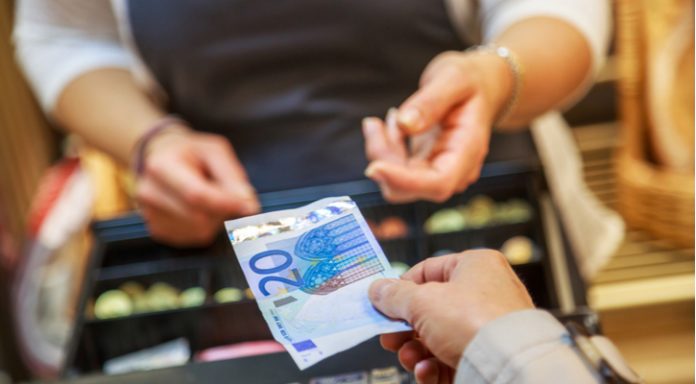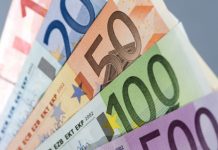The pound rallied against the euro on Tuesday following the release of UK inflation data. The pound climbed over 0.5% higher versus the common currency to reach a 7 week high of €1.1433.
| What do these figures mean? |
|---|
|
When measuring the value of a pair of currencies, one set equals 1 unit and the other shows the current equivalent. As the market moves, the amount will vary from minute to minute. For example, it could be written: 1 GBP = 1.13990 EUR Here, £1 is equivalent to approximately €1.14. This specifically measures the pound’s worth against the euro. If the euro amount increases in this pairing, it’s positive for the pound. Or, if you were looking at it the other way around: 1 EUR = 0.87271 GBP In this example, €1 is equivalent to approximately £0.87. This measures the euro’s worth versus the British pound. If the sterling number gets larger, it’s good news for the euro. |
Data published by the Office for National Statistics showing that price rises in the UK are finally easing, boosted the pound. Inflation as measured by the Consumer Price Index (CPI) fell back to 2.7% in February, after being elevated at 3% for the past 5 months. Core inflation, which removes more volatile items such as food and fuel also fell to 2.4%, down from 2.7% the previous month.
The fall in inflation will come as a huge relief to consumers, who have been struggling against high levels of inflation since the Brexit referendum in June 2016. The squeeze on household budgets has been particularly acute over the past few months as wages have been increasing at a slower pace than prices, meaning that consumers were actually experiencing a wage fall in real terms. With this pressure starting to ease, consumers are increasingly likely to start spending again; essential for the UK economy — an economy so dependent on consumers spending.
Today the focus will switch to average earnings. Investors will look towards labour data to see whether the gap between wages and inflation is closing. Analyst expect average weekly earnings to have increased by 2.6% in the three months to January. Should this be the case then wages will be increasing faster than core inflation and almost as quickly as inflation. This would be good news for the UK economy, however it could lead the BoE to stroke a more dovish tone when it meets this week. This means an interest rate rise could be pushed further back.
| Why do raised interest rates boost a currency’s value? |
|---|
| Interest rates are key to understanding exchange rate movements. Those who have large sums of money to invest want the highest return on their investments. Higher interest rate environments tend to offer higher yields. So, if the interest rate or at least the interest rate expectation of a country is relatively higher compared to another, then it attracts more foreign capital investment. Large corporations and investors need local currency to invest. More local currency used then boosts the demand of that currency, pushing the value higher. |
Eurozone Economic Sentiment Falls Sharply
The euro was on the back foot in the previous session after economic sentiment in the eurozone fell more steeply than what analyst had been expecting. The data released by showed sentiment plummeted from 29.3 in February to 13.4 in March, sharply lower than the 28.1 that analysts had predicted. The decline was attributed to fears regarding US protectionism and concerns that a strong euro could be damaging the eurozone economy. Following the weak data the euro fell.
| Why does poor economic data drag on a country’s currency? |
|---|
| Slowing economic indicators point to a slowing economy. Weak economies have weaker currencies because institutions look to reduce investments in countries where growth prospects are low and then transfer money to countries with higher growth prospects. These institutions sell out of their investment and the local currency, thus increasing supply of the currency and pushing down the money’s worth. So, when a country or region has poor economic news, the value of the currency tends to fall. |
Today there is no influential eurozone data due to be released so movement in the euro pound exchange rate will be driven by UK data.
|
This article was initially published on TransferWise.com from the same author. The content at Currency Live is the sole opinion of the authors and in no way reflects the views of TransferWise Inc. |





